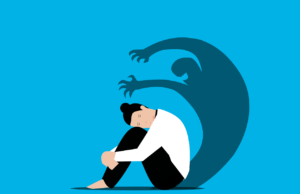ATLANTA, GA – July 26, 2023 – Suicide is a leading cause of death and a serious public health problem in the U.S. A suicide is a death caused by a self-inflicted injury with the intent to die. A suicide attempt is also caused by a self-inflicted injury with the intent to die but does not result in death. Many factors can increase a person’s suicide risk such as child abuse, bullying, or sexual violence.
Some facts about suicide (from 2020 data):
- Over 1 million people attempted suicide and almost 46 thousand people died as a result.
- It’s the 9th leading cause of death for people ages 10-64 and the 2nd leading cause of death for people ages 10-14 and 25-34.
- Rates are higher in the non-Hispanic Native American/Native Alaskan group, the non-Hispanic White group, males, persons aged 85 and older, veterans, people who live in rural areas, miners, construction workers, and persons who identify as LGBT.
- Firearms are used in more than 50% of suicides.
- Rates are lower in North Carolina (13.2 per 100,000) than nationally (13.5 per 100,000)
- In 2018, rates were 50% higher in Buncombe County than in North Carolina
According to Substance Abuse and Mental Health Services Administration’s 2021 National Survey on Drug Use and Health
- Almost 13% of adolescents ages 12 to 17 had serious thoughts of suicide
- Almost 5% of adults ages 18 and older had serious thoughts of suicide
The impact of suicide and suicide attempts can result in serious emotional, physical and economic harm. People who attempt suicide and survive may have long-term health problems like depression and serious physical injuries. Family and friends of persons who die by suicide may develop mental health concerns. The economic affect from suicide and nonfatal suicide attempts was estimated in 2019 to cost the nation $490 billion in medical costs, work loss, quality of life and value of life.
A comprehensive public health approach can result in suicide prevention. Suicidal thoughts and behaviors have been shown to decrease with having easy access to health care, a supportive family and community support.
Listen to the full report below:
Contact: Dick Needleman, Health reporter, 103.3 AshevilleFM, [email protected]
More Posts for Show: Asheville FM News Hour
